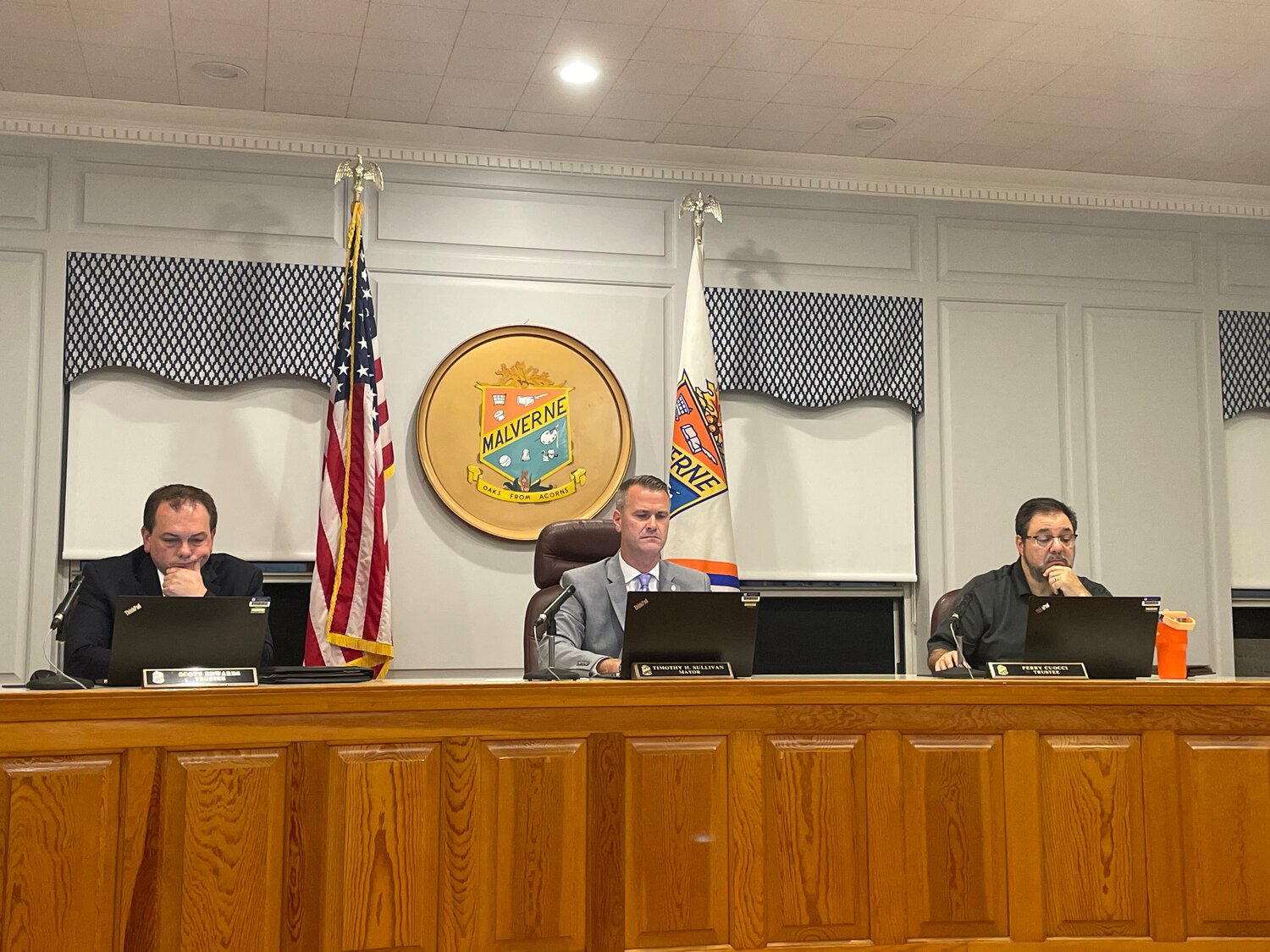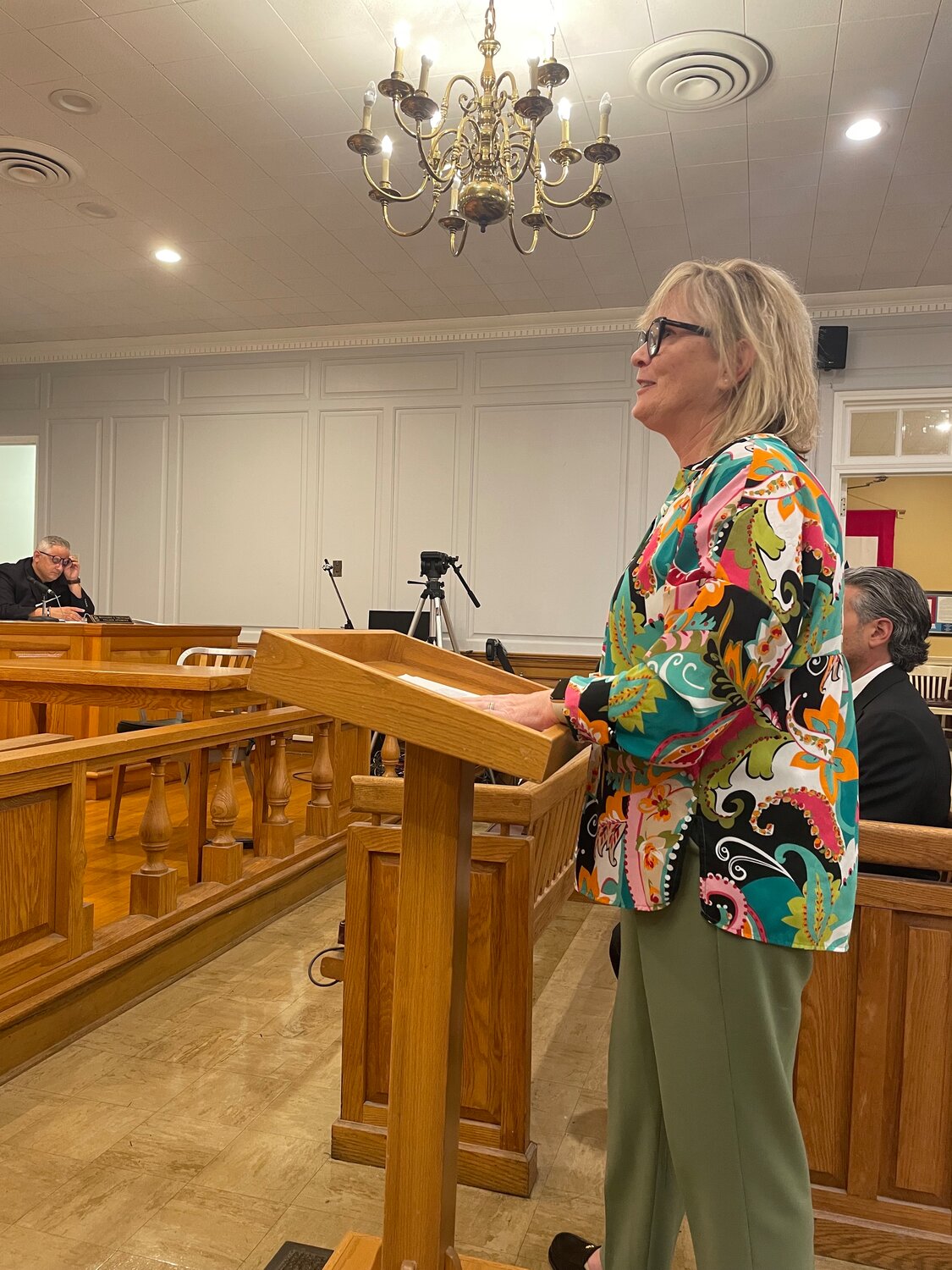Can you hear me now? Malverne grapples with noise issues.
Neighbors are saying that Malverne has gotten noisier, and the village board is trying to turn down the volume.
Mayor Tim Sullivan and the board held a meeting on Sept. 21 to introduce the first draft of an ordinance to limit unwanted noise, which some community members say is at an all-time high.
“It’s very rare that you’re implementing new ordinances, and we took it upon ourselves to put this to the top of the list because of the concerns that we’ve heard from you,” Sullivan said at the meeting. “We’re trying to implement something to help everyone out, to really balance the needs and the harmony of the village a little bit better.”
The board offered a first draft of a potential noise ordinance, which stated that an abundance of loud noise — whether from music, construction or people gathered for an event — should not “adversely impact the wellbeing, peacefulness and ability of residents to enjoy their property.”
According to the draft ordinance, a residence may play music not exceeding 80 decibels at the property line on weekdays and Sundays from 10 a.m. until 9 p.m., and on Fridays and Saturdays from 10 a.m. to 10 p.m. A business may obtain a permit from the board to play music outdoors on Thursdays, Fridays and Saturdays from noon to 10 p.m., and Sundays from noon to 8 p.m. That music cannot exceed 90 decibels. Without a permit, or outside those times, music must be played indoors, and cannot exceed 60 decibels.
Sullivan said that some other village codes are vague on what constitutes “unlawful” noise — they describe “peace being disturbed” and “excessive noise,” but what constitutes excessive? That’s part of what the village board is setting out to clarify in its own version of a noise ordinance.
“The idea is to put further parameters, to define the things that are already in the code, so that everybody has a set of more specific rules that are enforceable,” the mayor said.
Some neighbors expressed their concerns about the draft ordinance.
“My son is in fourth grade,” Jessica Mudzinski said at the meeting. “My husband has to be in at work at 7:30 a.m. every day of the week. Thursday is not a weekend.”
She and others also asked whether, if noon to 10 p.m. were the time frame, that would mean a business could play music for 10 hours straight. Or would time limits be specified in future drafts of the ordinance? Further, 90 decibels is on the louder side — how often and how long could a business play music at that level?
“That’s concert-level,” Malverne resident Billy Miller said. “That’s loud.”
“Crossroads Farm has music six times a year, maybe eight times, tops,” Brian Mudzinski said. “Broadway Tavern has it every weekend, multiple times a week.”
Attendees also raised the question of enforcement. When someone is hosting a party with loud music and sees the police pull up, they’re likely to lower the volume only until the police drive away, and then crank it up again. And should police even be responding to such relatively petty concerns?
“Noise is important, but at the end of the day, that shouldn’t be what police do every weekend — to babysit the businesses of the town,” Jessica Mudzinski said.
Attendees also expressed frustration that noise has become an ongoing problem in the first place, saying that as people choose to live in an incorporated village and pay higher taxes for a localized police force and other services, the quality of life in that village should reflect that. “I moved to an incorporated village for a better life,” Miller said. “I came from Queens, a lot of noise. I moved to Malverne.
“I live there, and I just have to deal with music now,” Miller added. “And I never had to deal with it for many years.”
Anne Fernandez has lived in Malverne for 26 years, she said, and has raised three children here. She was sitting with her husband in their backyard this summer, she recounted, when they realized that the constant loud music had gotten out of hand.
“We have such a special community, and I stay here because of our community,” Fernandez said. “It really does make people not want to move into the area, and makes people want to move away.”
Attendees also suggested possible solutions, including soundproofing businesses, letting residents know when a nearby business applies for a music permit, and allowing neighbors to be a part of the permitting conversation.
“The questions that you have and the feedback we get from the community are valid concerns that we’re going to research further,” Sullivan said, emphasizing that the ordinance is a first draft that will undergo several revisions, all subject to community input. After those rounds of revisions and feedback, the measure may be put to a village board vote.
To stay up to date on future meetings, go to MalverneVillage.org.

 60.0°,
Mostly Cloudy
60.0°,
Mostly Cloudy 







